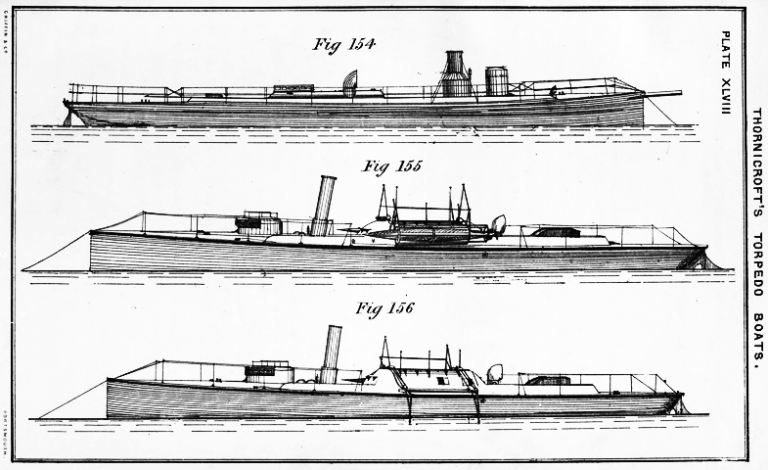Microsoft Stock: Weathering The Tariff Storm

Table of Contents
The Impact of Tariffs on Microsoft's Revenue Streams
Tariffs significantly impact various aspects of Microsoft's business, creating both direct and indirect challenges. Let's examine these effects on different revenue streams.
Hardware Sales and Supply Chain Disruptions
Tariffs directly increase the cost of manufacturing and importing Microsoft hardware. Products like Surface devices and Xbox consoles are particularly vulnerable.
- Increased Production Costs: Tariffs add a significant percentage to the cost of components sourced internationally, squeezing profit margins.
- Potential Price Increases: To maintain profitability, Microsoft may be forced to increase prices, potentially impacting sales volume.
- Impact on Sales Volume: Higher prices can lead to reduced consumer demand, especially in price-sensitive markets.
- Alternative Sourcing Strategies: Microsoft is likely exploring alternative sourcing strategies to mitigate the impact of tariffs, but this is a complex and time-consuming process. This includes exploring manufacturing in regions with more favorable trade agreements, potentially leading to new supply chain complexities. This impacts Microsoft Surface, Xbox sales, and the overall supply chain.
Cloud Computing and Global Market Access
While seemingly less directly affected, Microsoft Azure's cloud computing services are indirectly impacted by tariffs. Increased operational costs for businesses due to tariffs can reduce their willingness to invest in cloud infrastructure.
- Reduced Business Spending: Businesses facing higher input costs due to tariffs may cut back on spending, including cloud services.
- Impact on Cloud Adoption Rates: This reduced spending can slow down the overall rate of cloud adoption, impacting Microsoft Azure's growth.
- Potential for Regional Variations in Cloud Service Demand: The impact of tariffs will vary across regions, potentially affecting demand for cloud services differently depending on the specific market's exposure to tariffs.
Software Licensing and International Sales
The impact of tariffs on Microsoft's software licensing and international sales is more nuanced and less direct.
- Potential for Indirect Impact: Reduced overall economic activity caused by tariffs can indirectly affect software sales as businesses cut back on IT spending.
- Currency Fluctuations: Tariffs and trade disputes can cause currency fluctuations, impacting the profitability of international sales and licensing agreements.
- Effects on Specific Markets: Certain markets may be more severely affected by tariffs than others, leading to localized variations in software sales.
Microsoft's Strategic Response to Tariff Challenges
Microsoft isn't passively accepting the challenges posed by tariffs. They're implementing several strategies to mitigate the risks.
Diversification Strategies
To reduce reliance on specific markets and manufacturing locations, Microsoft is actively diversifying its operations.
- Investment in Emerging Markets: Expanding into new, fast-growing markets helps offset potential losses in tariff-affected regions.
- Expansion of Data Centers in Various Regions: Building data centers in multiple geographic locations reduces dependence on single points of failure and enhances service reliability.
- Partnerships with Local Businesses: Collaborating with local businesses in various regions helps navigate complex trade regulations and build stronger market presence. This supports market diversification and geographic expansion, thereby mitigating risks.
Lobbying and Political Engagement
Microsoft actively participates in political processes to influence trade policy.
- Participation in Trade Organizations: Engagement with trade organizations allows Microsoft to advocate for policies that support its interests.
- Advocacy for Favorable Trade Agreements: Lobbying efforts aim to influence trade negotiations to create more favorable conditions.
- Public Statements on Tariff Policies: Public pronouncements on trade policies help shape public opinion and potentially influence government decisions.
Cost Optimization and Efficiency Improvements
Internal cost optimization and efficiency improvements are crucial to offset the negative impact of tariffs.
- Supply Chain Optimization: Streamlining the supply chain reduces redundancies and improves cost-effectiveness.
- Automation: Automating processes reduces labor costs and improves overall efficiency.
- Process Improvements: Implementing more efficient internal processes reduces operational costs.
- Internal Cost Reduction Initiatives: Implementing various cost-cutting measures across the organization to improve profitability.
Investor Sentiment and Microsoft Stock Performance
Understanding investor sentiment and analyzing Microsoft stock performance in relation to tariffs is crucial for investors.
Stock Price Analysis
Analyzing Microsoft's stock price reveals how investors are reacting to tariff-related news.
- Correlation between Stock Price and Tariff Announcements: Observing any correlation between tariff-related news and stock price fluctuations is important.
- Investor Reaction to Trade Negotiations: The market's response to trade negotiations significantly impacts investor sentiment.
- Market Volatility: Trade wars and tariffs contribute to increased market volatility, impacting Microsoft stock.
Analyst Forecasts and Predictions
Financial analysts offer insights into the long-term implications of tariffs on Microsoft stock.
- Consensus Forecasts: Understanding the consensus view among analysts regarding Microsoft’s future performance is critical.
- Range of Predictions: Considering the range of predictions helps assess the potential upside and downside risks.
- Factors Influencing Analysts’ Opinions: Analyzing the factors that shape analysts' opinions provides valuable context.
Conclusion
Tariffs pose complex challenges to Microsoft's business, affecting hardware sales, cloud services, and international operations. However, Microsoft is actively responding through diversification, political engagement, and cost optimization. While the impact of tariffs on Microsoft stock remains uncertain, investors should carefully consider these factors before making investment decisions. Stay informed about the latest developments affecting Microsoft stock and the ongoing impact of tariffs. Conduct your own due diligence before investing in Microsoft stock and understand the complexities of the global trade landscape before making decisions on your Microsoft stock portfolio.

Featured Posts
-
 Leeflang Affaire Bruins Eist Snel Overleg Met Npo
May 15, 2025
Leeflang Affaire Bruins Eist Snel Overleg Met Npo
May 15, 2025 -
 Padres Vs Cubs Game Prediction Cubs Chances For Victory
May 15, 2025
Padres Vs Cubs Game Prediction Cubs Chances For Victory
May 15, 2025 -
 Jersey Numbers And The Butler Heat Saga A Hall Of Famers Perspective On The Growing Conflict
May 15, 2025
Jersey Numbers And The Butler Heat Saga A Hall Of Famers Perspective On The Growing Conflict
May 15, 2025 -
 Key Provisions Of The House Republicans Trump Tax Plan
May 15, 2025
Key Provisions Of The House Republicans Trump Tax Plan
May 15, 2025 -
 Justice Sought Trans Master Sergeant Fights Unjust Discharge
May 15, 2025
Justice Sought Trans Master Sergeant Fights Unjust Discharge
May 15, 2025
Latest Posts
-
 The Impact Of Bat Choice Max Muncys Torpedo Bat Experience
May 15, 2025
The Impact Of Bat Choice Max Muncys Torpedo Bat Experience
May 15, 2025 -
 Anthony Edwards Facing Custody Battle Mothers Response
May 15, 2025
Anthony Edwards Facing Custody Battle Mothers Response
May 15, 2025 -
 Mlb Muncys Torpedo Bat Trial And Unexpected Success
May 15, 2025
Mlb Muncys Torpedo Bat Trial And Unexpected Success
May 15, 2025 -
 Anthony Edwards Baby Mama Drama Ignites Twitter
May 15, 2025
Anthony Edwards Baby Mama Drama Ignites Twitter
May 15, 2025 -
 Three At Bats One Double Muncys Torpedo Bat Test
May 15, 2025
Three At Bats One Double Muncys Torpedo Bat Test
May 15, 2025
